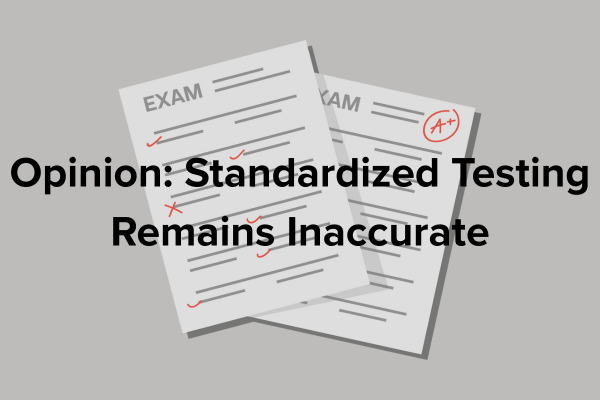
I walk into a classroom full of students putting pencil to paper, completing a test or quiz. One by one, they rise from their desks with sighs of relief as they stroll to the teacher’s desk and turn in their work. The room seemed quiet upon entering. But was it really?
Although not all students cheat, most have turned it into second nature. Believe it or not, even the smartest and most brilliant students resort to the casual glance over the shoulder every once in awhile. Some students assert they understand cheating as a morally wrong act, but they find themselves doing it anyway.
On average, it takes more than two months before a new behavior becomes automatic, or a habit. Meaning, when children begin cheating at such a tender age, it’s likely that they’ll do it when they are older, and they’ll do it better. In most schools, the zero tolerance policy has been implemented by teachers and administration, yet some students still manage to cheat.
According to a study done by Professor Michael Bishop from California State University San Marcos, a cheater through deception and crookedness, achieves what an honest student works extremely hard for. We can argue all day that students who work hard are not always void of cheating, however, learning the material so cheating won’t be an option can be the solution to this problem.
One can cheat without knowing. Students establish looking up the answers to a homework assignment as not doing it, whereas a matter of fact the as equal as using Siri during a test to make up for information that wasn’t crammed the night before. Cheating doesn’t only occur during test and quizzes. It can even be involving oneself in a 20 member group chat made to “help” each other out. When the group chat gets busted, there is no other excuse to hide behind when the sole purpose really was to cheat.
Some use cheating to their advantage on a regular basis, whereas others cheat “every once in while,” Which still makes it equally as wrong. The long-term effects of cheating now don’t look promising, and it surely doesn’t make you learn said needed information. Currently, no ideal way to make every person abstain from cheating exists. Students will always find ways to be lazy and get out of their work, but they need to remember the effects it can have on their future.
By ignoring academic dishonesty, we send a message to students that cheating is a minor infraction. Just because the majority does it, doesn’t make it right. Not only can the administration work to minimize the extremity of cheating in public schools, but students and fellow peers have the ability to help keep academic dishonesty at an all-time low.















